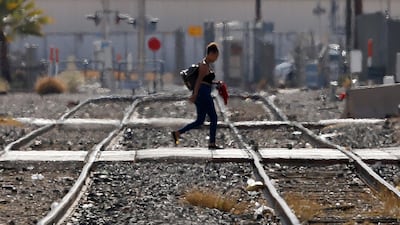If you've been hot lately, you're not alone. Record high temperatures have been logged over the past week around the world.
Here's a quick look at the heat
The Georgian capital of Tbilisi hit an all-time high of 41 degrees Celsius on Wednesday, and 43 degrees in Baku, the capital of Azerbaijan, on Sunday. On Monday, Iran experienced its hottest July temperature ever, 53 degrees.
For the week through Tuesday, 227 U.S. records were broken for highest temperature for particular days, and another 157 were tied, federal statistics show.
There was also a lack of cooling overnight, with 451 records broken for warmest minimum temperatures for particular days, and another 421 tied. In Burlington, Vermont, for example, the temperature got down only to 27 degrees on July 2, its highest low temperature ever.
The UK is currently enjoying its longest heatwave since 1976 with temperatures hitting 29C for eight days in a row at the end of June and beginning of July.
Health authorities in the Canadian province of Quebec said Thursday that 33 people have died from heat-related complications in the last few days.
Eighteen of those deaths have come in Montreal, where humid temperatures climbed past 43 degrees.
Southern California simmered Thursday in the early stages of a potentially dangerous heatwave that forecasters predicted would send temperatures soaring to record levels and create conditions that could readily cause wildfires to spread. “We could shatter — shatter — some records,” said meteorologist Alex Tardy of the San Diego National Weather Service office. Forecasts predict Los Angeles will hit 39 degrees Friday. The city has experienced only five July days in recorded history that were warmer, he said.
IS THIS DUE TO CLIMATE CHANGE?
Heat waves are a part of every summer, and scientists hesitate to link any single weather event to the warming climate that researchers have measured over long periods of time. Still, Matthew Rosencrans of the National Weather Service says that because of global warming, "heat waves like this are likely to be more frequent going forward than they have been in the past."
Jeff Masters, director of meteorology for the private forecasting service Weather Underground, said the past week's heat wave "is the kind of thing you expect to see on a warming planet ... it's easier to set a heat record." He notes that 2016 was the warmest year on record globally, and that year saw the most all-time heat records broken around the world.





